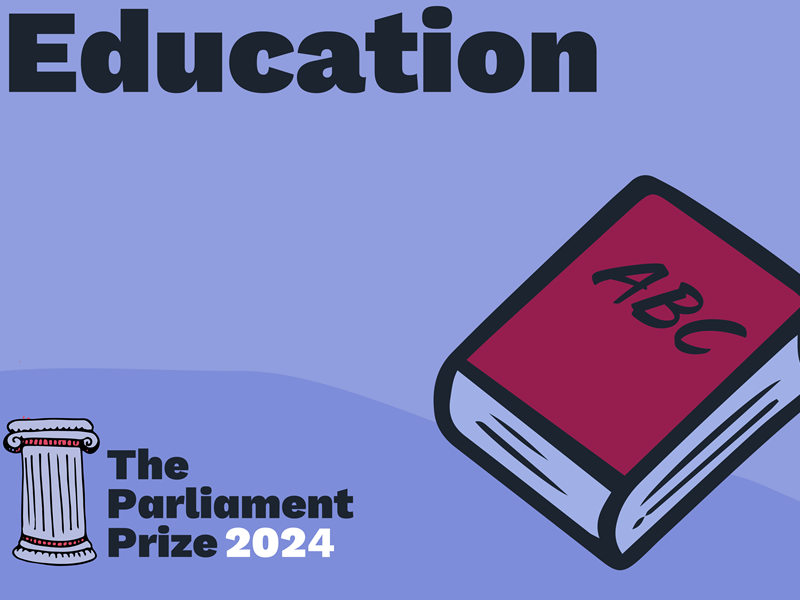Parliament Prize 2024: What were young people saying about education?
15 October 2024

One of our most popular topics for Parliament Prize participants, as always, is education, with students sharing their thoughts around issues of equity and access, curriculum, school buildings and raft of other topics.
This year more than 150 young people shared their thoughts on education. We've compiled a summary of what they spoke about, representing the most popular environmental themes and issues highlighted by participants in this year's competition. They provide an interesting insight into the issues young people are thinking about and, more importantly, talking about.

Equity and access
- Equal funding, including adequate funding public schools and support for disadvantaged schools.
- Access to resources, including up-to-date library materials and technological tools.
- Safe and inclusive environments, including creating and maintaining safe playgrounds and accessible school environments.
- Free education, including affordable schooling and university education.
- Free public transport, including providing free public transport to reduce the cost of getting to school, particularly for families facing financial difficulties.
Curriculum and teaching methods
- Holistic education, including development of critical thinking, creativity, and problem-solving skills for better preparedness for real-world challenges.
- Balanced approach, including needing a balance between structured guidance, creative expression and independent thinking, and criticisms of explicit teaching limiting student voice.
- AI and technology, including the integration of AI to support personalising learning, reduce teacher workloads, and teach students about ethical use of technology.
Student wellbeing and support 
- Supporting student wellbeing, including the introduction of therapy dogs in schools and the need for additional emotional support structures.
- Homework and school hours, including reducing or eliminating homework and adjusting school start times to align better with teenagers' biological clocks.
- Inclusivity, including support for neurodivergent learners, such as environments that cater to the needs of neurodivergent students.
Infrastructure and safety
- Modernised playgrounds and facilities, including addressing safety hazards and facility improvements, especially in rural schools.
- School security, including measures to protect students from various threats, including bullying and potential violence.
Teacher support and professional development
- Teacher shortages and pay, including addressing retention issues, improving pay and working conditions, and providing adequate support.
- Professional development, including investing in ongoing professional development focusing best practices and meeting diverse student needs.
- Teacher wellbeing and professional support, including addressing teacher burnout by reducing administrative tasks and increasing focus on teaching.
Inclusivity and cultural education
- Indigenous education, including incorporating local Indigenous languages and cultures into the school curriculum to promote understanding and reconciliation.
- Auslan (Sign Language), including teaching Auslan to improve communication with the Deaf community and promote inclusivity.
- Broader language education, including encouraging the teaching of multiple languages in schools, also enhancing cultural awareness.
Reforms and extracurricular activities
- Curriculum reforms, including reforming the Year 10 curriculum to cater to diverse student needs and pathways.
- Enrichment activities, including developing a sense of community through extracurricular activities such as chess clubs and inter-school collaborations.
- Sports and recreation, including promoting more physical activity in schools and improving sports funding to support students' health and well-being.